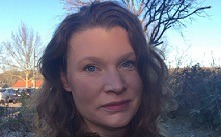I am a woman of 40 years, who has been impacted by Alzheimer’s Disease for more than half of my life. My grandmother was buried during my first year and the autopsy showed Alzheimer’s. When I was just a young teenager, my father was affected by the disease and eventually died in 1999. His brother died seven years after with the same disease.
I am thus committed to educate people about the Alzheimer’s Disease. With money from the Swedish Alzheimer Association I was able together with two other persons to make a film about being young and related to this disease.
I could not have imagined that seventeen years after my father’s death, I would receive the news that I was affected as well. Unfortunately, I had to struggle at first as believed by doctors. When I passed most of the standardized tests, the doctors said that it was nothing to be worried about. I had to change doctors twice but I finally got the help when I got in contact with my father’s old retired doctor, and move to the area where I lived when my father was still alive to get help. While the medical investigation was going on, I studied to be a health educator and managed a three-year education at the university.
I will be writing about the many challenges of young-onset Alzheimer’s patients, and especially women’s encounters.



